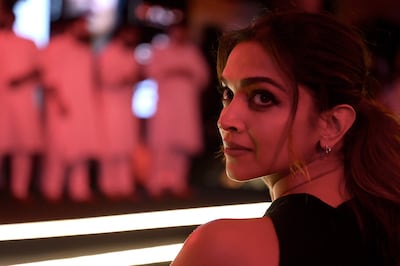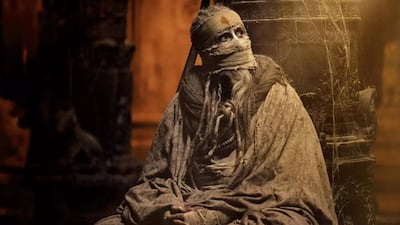Director Nag Ashwin's Kalki 2898 AD is poised to be one of the biggest Indian releases of the summer, but its story begins more than 15 years ago in Hollywood with the failed movie that seems to have inspired it.
In August 2008, 20th Century Fox released Babylon AD, a science-fiction action film set in a dystopian future and starring Vin Diesel as Toroop, a mercenary hired to transport a woman named Aurora (Melanie Thierry) from Asia to New York City.
The film was directed by Mathieu Kassovitz, a French actor-director then famous for his role as the love interest in Jean-Pierre Jeunet's Amelie (2001). Budgeted around $60-70 million, the film – Kassovitz's sixth as director, and his second in the English language – grossly underperformed, was critically reviled and ended up being the focal point of a 2011 documentary centred around the director's hostile experience. He has not directed another English-language movie since and the science-fiction film has fallen into obscurity.
Nearly 16 years have since passed, and Ashwin's (Mahanati, 2018) newest mega-budget science-fiction action film, Kalki 2898 AD, seems to borrow the vague plot from Kassovitz's film. It has been remixed thoroughly with significant elements of the Indian mythological epic Mahabharata, creating what ends up being a boundlessly entertaining rollercoaster.

It is led by Telugu cinema's big-ticket movie star Prabhas (the Baahubali film series, 2015-2017). He plays Bhairava, a bounty hunter who receives a big ticket to intercept and deliver a pregnant woman, known only as SUM-80 (Deepika Padukone; Pathaan, 2023) to Commander Manas (Saswata Chatterjee; Crew, 2024). He is the totalitarian ruler of The Complex, a giant diamond-shaped utopia towering over the world's last living city of Kashi.
Babylon AD isn't the only film Kalki 2898 AD borrows from. It is full of inspirations, homages, and love letters of varying degrees. From the drought-riddled psychotic post-apocalyptic aesthetic of George Miller's Mad Max series to Star Wars, No Man's Sky, Marvel's Guardians of the Galaxy, Guerilla Games' Horizon video game series and Michael Bay's The Island – and that's only naming a few – the film frequently and frustratingly brings other films to mind.
However, it doesn't feel derivative for a second. Ashwin's creation boasts sincerity and authenticity. Kalki 2898 AD marries global movie maximalism à la Michael Bay with the Indian potboiler recipe, packed with jaw-dropping worldbuilding, a mostly well-oiled narrative and fantastic performances.

Prabhas dials the charm of his smooth-talking, shady bounty hunter to the max and it works exceptionally well – both for him and the character he plays. Amitabh Bachchan and Saswata Chatterjee are massive draws who dig into their roles of tragic antihero and vile antagonistic tyrant, respectively.
Shobhana delivers a knockout performance as a Morpheus-coded warrior but does not feature enough, keeping especially in mind her electric action-packed turn in a massive set-piece towards the end (you'll know it when you see it).
Kalki 2898 AD's biggest draw, more than its characters and immersive filmmaking, however, is its sincerity. It is unabashedly earnest in a way few filmmakers are and proudly wears its inspirations on its sleeve. Having dethroned RRR (2022) as the most expensive Indian production ever at $72 million, the film is clearly in love with big movies. However, it showcases it in a way that's neither cynical nor with self-referential winking.
It's a pure, old-school big screen experience that may borrow visually and narratively from more than a few places but ends up being a prime example of how, in the words of Paterson director Jim Jarmusch, “authenticity is invaluable; originality is non-existent”.
It's a celebration of its own inspirations while also being its own strikingly singular artistic voice.

